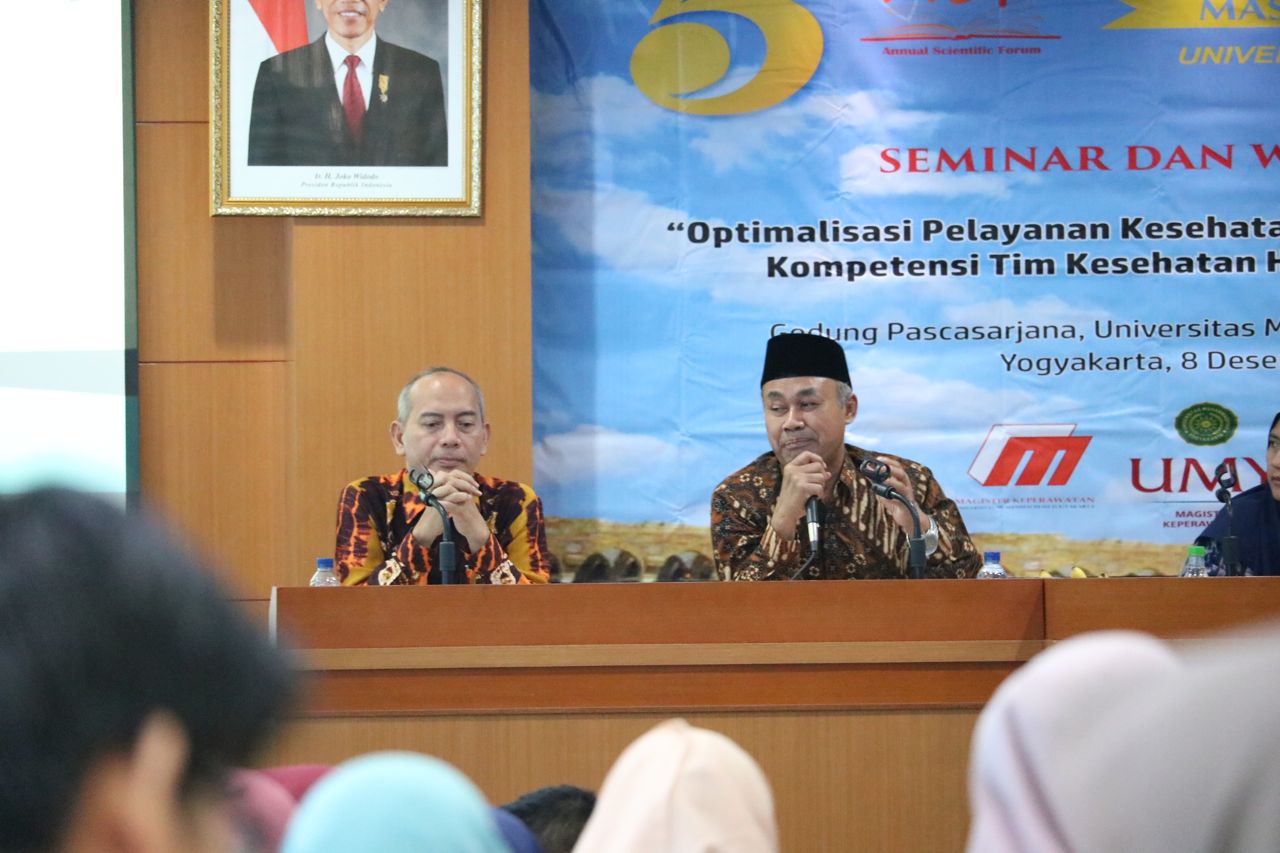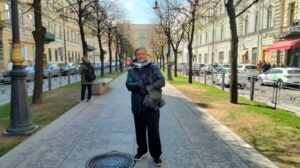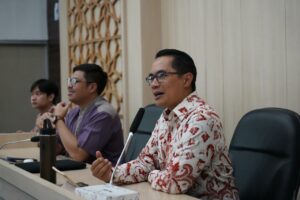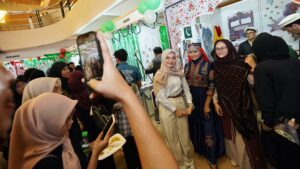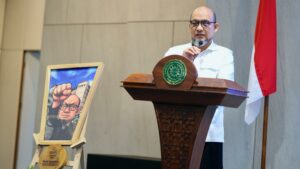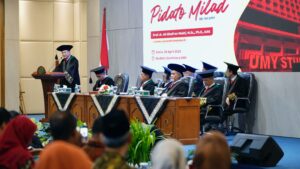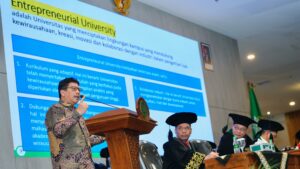Indonesia has the largest Muslim population in the world that many of them do a hajj each year. Ministry of Religion of the Republic of Indonesia always seeks to support the pilgrims by concerning with their health. However, the ministry confronts some barriers to manage the pilgrimage. To contribute to solve the issues, Master’s Program of Nursing of Universitas Muhammadiyah Yogyakarta (UMY) conducted the 5th Annual Scientific Forum on ‘Optimizing Hajj Health Services through Enhancing the Competence of Qualified Hajj Health Teams’. The seminar and workshop were conducted at Building of Kasman Singodimedjo of UMY on Saturday (8/12).
Office Head of Ministry of Health of Kulonprogro Regency, Daerah Istimewa Yogyakarta (DIY) H. Nurudin, S.H., M.H. as a speaker at the forum informed one of the reasons why the pilgrims are in a long line to perform the hajj. “Prospective pilgrims encounter a lot of obstacles since the hajj entails spiritual awareness and heavily physical activities. Indeed, the hajj queue duration is 20 years because the hajj is only undertaken in a certain time and many people would like to carry it out,” he declared.
Thus, many pilgrims go to Mecca when they are quite old. “They are from various backgrounds and conditions. One of our main foci is that the pilgrims’ age because one of the requirements to do hajj is possessing physical health. To bolster their health, government provides a program of Indonesian Hajj Guide Team (TPHI). The team will assist the pilgrims. Nevertheless the number of team members is only few. For instance, there are only five medical team members to serve 355 pilgrims in DIY. The team will help pilgrims having special needs and if emergency occurs,” told Nurudin.
Meanwhile, a lecturer of Master’s Program of Nursing of UMY Dr. dr. Kusbaryanto, FISPH, FISCM declared that competent medical personnel are necessary. “The team will give health services to a group of pilgrims prior to and after the hajj and report the medical records to Ministry of Health of the Republic of Indonesia. Since most of pilgrims are the elderly, the medical team should be able to handle acute respiratory infection (ARI), asthenia, and heart diseases. Besides, the team should also care about psychological issues as the pilgrims think about their family so that they get stressed,” he maintained.
Kusbaryanto advised that the medical team should also be able to take care of themselves. “Since their duty is to serve the pilgrims, they firstly have to care about themselves. For example, the medical team does not need to force themselves to perform sunnah worship as they kiss hajar aswad (the Black Stone).
